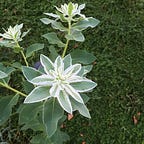Don’t Call Me Out My Name! summer 2020
Iam still reeling from the social media post involving a young African American woman’s reaction to being called, “n — — r!”, while shopping in the neighborhood supermarket. After ten minutes of navigating the situation, she walked away in exasperation. Her only request, “Don’t call me out my name!” To be called outside one’s name, is to be confronted with a derogatory term with deliberate disregard for your preferred designation. When you are called outside your name, your identity is assaulted. Indignation, anger, and exasperation are legitimate emotional responses to this assault.
Just consider the lengths we go to when selecting our children’s names. Some scour the top-25 name lists -either gravitating to the most popular or pivoting away towards the most unique. We contemplate hyphenations and consider a favorite aunt or brother for the namesake. The harmonious combination of a first, middle, and last name becomes a mitigating factor. We lean into our customs and rely on norms. Our naming ceremonies and religious traditions broadcast pride and bear witness to our histories. So-when you are called outside your name, your identity is assaulted.
“Don’t call me out my name!” is a righteous request for many, including those dehumanized because of their religion, gender/gender identity, sexual orientation, or ethnicity. The righteous request to be acknowledged is all the more complicated for African Americans. Consider that most 18th and 19th century colonial documents describe the enslaved as black negro boy, wench, male negro, and colored baby. These benign descriptors stripped away their humanity and disrupted their home country connections. Today, our deliberately dynamic name selections, many Afrocentric inspired, endeavor to restore these connections and reclaim our humanity. So-when you call an African American outside their name, you assault our identities.
When you call us outside our names, ….
You activate your privilege
You attack our humanity
You articulate your biases
You disregard our traditions
You expose your xenophobia
You supplant our history
You propagate your supremacy
You diminish our contributions
You disrupt our legacies, and
You necessitate our assertion that “Black Lives Matter!”
To the young woman in the supermarket, your indignation, anger, and exasperation were legitimate emotional responses to the assault on your identity.
